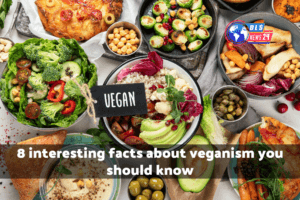
Starting a gluten-free diet can seem challenging, but with the right guidance, it can lead to better health. It is appropriate for those with intolerance to gluten, celiac disease, or any person who cares about their kind of diet. The key is to focus on a naturally gluten-free diet or supply your body with nutritious gluten-free meals so that you do not miss sweet temptations.
Let’s explore how to begin your gluten-free journey with essential tips for nutrition, the best meals, and how to enjoy a healthy diet every day.
What Is a Gluten-Free Diet?
A gluten-free diet eliminates gluten, a protein found in wheat, barley, and rye. People who follow this diet avoid bread, pasta, and other foods containing these grains. Gluten can cause severe health problems for individuals with celiac disease or gluten sensitivity. For them, this dietary change is not just a trend—it’s a necessity.
The internet is full of delicious gluten-free recipes for all sorts of dishes; they’re not all tasteless. Gluten-free meals that taste great can be prepared with beans, vegetables, fruits, and lean meat like chicken or fish. Some of the common grains, like rice, quinoa, corn, etc, are also gluten-free.
When starting this diet, it’s essential to check food labels. Gluten can often hide in unexpected places, like sauces, soups, or even snacks. Reading the ingredients list carefully ensures your meals are entirely gluten-free.
Nutrition is also key. If not well-planned, a gluten-free diet is deficient in fiber, vitamins, and minerals needed in the body. To avoid getting dietary gaps, one should ensure they incorporate high-fiber foods in their diets, such as vegetables, fruits, and gluten-free whole grains. You must eat healthy and get a balanced diet for the betterment of your health.

Benefits of a Gluten-Free Diet
Adopting a gluten-free diet offers several health benefits.
-
Relief from Digestive Discomfort
The major advantage of a gluten-free diet is that it helps to avoid gastrointestinal problems. Coeliac disease or gluten intolerance requires avoidance of gluten-based foods in order to do away with such symptoms as bloating, gas, and tiredness.
Most individuals see an enhancement in digestion and reduced stomach complaints shortly after transitioning to a gluten-free diet. Cutting down on gluten leads to minimal inflammation within the stomach. Hence, the general health of the stomach improves.
-
Boost in Energy Levels
Switching to a gluten-free diet can significantly boost your energy levels. Gluten can cause fatigue and brain fog in those with gluten intolerance. By removing gluten from your meals, you may feel more energetic and alert throughout the day.
Following a diet focused on gluten-free whole foods can improve your overall nutrition, helping you stay more active and feel less sluggish.
-
Improved Mental Clarity and Focus
Another benefit of going gluten-free is the potential improvement in mental clarity. Some individuals report better focus, concentration, and fewer headaches after eliminating gluten from their meals. A gluten-free diet rich in nutritious foods can also help stabilize mood, providing better emotional balance and mental sharpness.
-
Clearer Skin and Reduced Inflammation
For some, gluten triggers skin issues such as acne or eczema. By switching to a gluten-free diet, you may notice a reduction in skin flare-ups. Removing gluten from your meals can also reduce inflammation in the body, improving skin health and appearance. A diet focused on anti-inflammatory, gluten-free foods supports clearer, healthier skin.
-
Better Nutritional Balance with Whole Foods
When transitioning to a gluten-free diet, it’s important to focus on whole foods. Gluten-free processed products often lack essential nutrients like fiber, vitamins, and minerals. By planning your meals around nutrient-dense, naturally gluten-free foods like vegetables, fruits, and lean proteins, you’ll ensure you maintain balanced nutrition and avoid nutritional deficiencies.

Easy Gluten-Free Diet Ideas
Planning your meals on a gluten-free diet doesn’t have to be difficult. There are plenty of options that are both healthy and delicious.
-
Start Your Day with a Nutritious Gluten-Free Breakfast
Breakfast is a great opportunity to enjoy simple, gluten-free meals that are both satisfying and healthy. Try gluten-free oatmeal topped with fresh fruits or eggs paired with avocado for a nutrient-packed start. Both options offer plenty of fiber, vitamins, and healthy fats to kickstart your day while staying on track with your gluten-free diet.
-
Lunchtime Ideas for a Gluten-Free Diet
For lunch, focus on light but filling gluten-free meals. A fresh salad with quinoa, grilled chicken, or turkey wrapped in lettuce leaves makes a great, easy option. Quinoa provides essential nutrition, while lean proteins keep you satisfied throughout the day. These options are not only healthy but quick to prepare.
-
Simple Gluten-Free Dinners
Dinner on a gluten-free diet can be flavorful and nourishing. Go for simple dishes like grilled salmon with steamed vegetables or gluten-free pasta topped with homemade tomato sauce. Stir-fries using gluten-free soy sauce and a variety of vegetables are also quick and delicious meals that offer balanced nutrition without the hassle.
-
Experiment with Gluten-Free Grains for Variety
Keeping your gluten-free meals exciting is key to maintaining a healthy diet. Experiment with different gluten-free grains such as quinoa, buckwheat, or amaranth. These grains add variety, flavor, and essential nutrients to your diet. Including these grains ensures your gluten-free diet is diverse, preventing boredom while maintaining optimal nutrition.

-
Plan Your Gluten-Free Meals for Success
Meal planning is crucial when following a gluten-free diet. Having a list of go-to gluten-free recipes ensures you always have healthy options ready, reducing the temptation to reach for processed, gluten-containing foods. Planning also helps you make sure each meal is balanced, nutritious, and satisfying.
FAQs
Q1. What happens to your body when you go gluten-free?
When you adopt a gluten-free diet, you may notice improvements in digestion, reduced bloating, and more energy. For those with gluten sensitivity, symptoms like fatigue, headaches, and stomach pain often disappear.
Q2. Are gluten-free meals healthy?
Yes, but it depends on your choices. Naturally, gluten-free foods like vegetables, fruits, and lean proteins are highly nutritious. However, processed gluten-free products can be low in essential nutrients, so it’s important to focus on whole, unprocessed foods.
Q3. Can gluten-free diets help with weight loss?
While some people lose weight on a gluten-free diet due to avoiding processed foods, it’s not guaranteed. Maintaining balanced nutrition and controlling portion sizes are key to any healthy eating plan, whether gluten-free or not.

